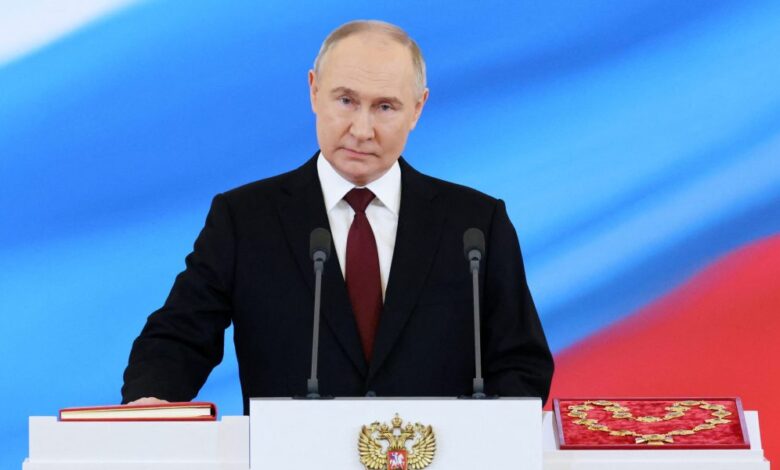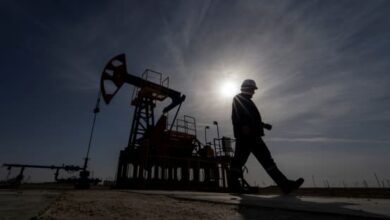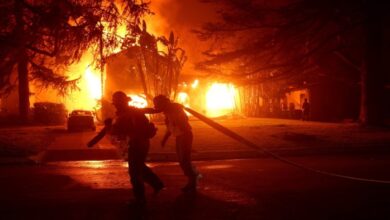Russia’s central bank attempts to prevent the ruble from falling amid inflation


In an effort to prevent red-hot inflation, Russia’s central bank has suspended all foreign currency purchases for the rest of the year, while actively selling the Chinese yuan, hoping to support ruble. The ruble – now worth just one penny – hit a low not seen since the start of the Ukraine war on Wednesday.
The aim is to put a floor on the ruble and limit further price pressure from leaking into the country through rising import costs. The Russian economy is also lacking foreign investment due to Western government sanctions banning companies from doing business with Russia. With most Russian financial institutions now cut off from trading in dollars, this leaves the country short of a steady supply of US currency reserves.
“This decision is aimed at reducing volatility in financial markets,” the Bank of Russia said. Wednesday.
The official inflation rate reached an annual high of over 9% in Augustand continues to remain at a high level. Russian political scientist Kirill Rogov believes that these numbers may be underestimating the problem and that the actual rate may be higher. materially higherciting data from Raiffeisen Bank analyst and market research company ROMIR.
The central bank’s announcement came a week after the US government impose new economic sanctions against Gazprombank The bank was previously exempted because it played a key role in allowing natural gas exports to some US allies in Europe by processing cross-border payments.
As a result, on Wednesday, the ruble fell below the exchange rate of 114 per dollar, its lowest level since early March 2022. Moscow Daily Rossiyskaya Gazeta call it was a “panic attack on Russia’s currency markets.”
Finance Minister Anton Siluanov argued that the drop would benefit exporters, whose goods would suddenly be much cheaper for foreign buyers. But the risk is that a weak ruble will only cause inflation from abroad by pushing up the prices of imported goods from abroad.
Russia raised interest rates to a high not seen in 20 years
Inflation began to increase in Russia after President Vladimir Putin directed it hundreds of thousands working-age men fought in Ukraine and mobilized Russian industry to support the country’s military goals. With fewer workers, wages in the civilian economy rose sharply. Rising labor costs were quickly passed on to consumers as supply struggled to meet domestic demand.
“The unemployment rate has never been as low as 2.4%,” central bank governor Elvira Nabiullina told lawmakers in the Russian Duma. earlier this month. “We are currently in an unprecedented situation where almost all manufacturing facilities are operating at full capacity.”
Consumer prices are rising. The price of a staple like potatoes almost double since December last year. Avocados are now so expensive that stores have had to lock up supplies prevent theft. Mortgage loans also skyrocketed after the government stopped providing generous subsidies in July to buy an apartment or house.
“Inflation has been running high for the fourth year in a row,” Nabiullina told lawmakers, adding “almost everything has become more expensive: raw materials, components, logistics, equipment , labor”.
Her organization’s response to these pressures was to increase the base rate by 2 percentage points to 21% in October, a level not seen since 2003.
However, this is not nearly enough to cool inflation or prevent the ruble from continuing to decline. This gave a boost to the Russian business daily RBK advocate on Wednesday that benchmark rates rose to a staggering 30%-40% to support the currency — even as this risks slowing growth.
High drug prices are more dangerous than inflation
Not everyone agrees. Chairman of Severstal Alexey Mordashov, a supplier of steel essential to the war effort, said high borrowing rates had taken a heavy toll – even worse, he said they had achieved relatively little.
“This is a situation that is probably unprecedented in the history of the modern world, when central bank interest rates are 2.5 times higher than inflation and still do not decrease,” Mordashov said. quote via politics as said on Wednesday. “It’s as if the medicine is more harmful than the disease.”
Russia’s fight to rein in consumer prices could give the incoming Trump administration greater leverage to force Moscow to the negotiating table.
On Wednesday, his transition team appoint Keith Kellogg serves as Special Envoy for Ukraine and Russia. Last week, the retired general backed the Biden administration’s approval of Ukraine’s use of long-range ATACMS missiles on targets in Russia in response to North Korea’s military deployment, saying the decision should have come much sooner.
“We basically withdrew Zelensky from participating in a war that he should have participated in a long time ago,” he said. speak fox News. “They should have done this a year ago.”
Russia responded to the latest escalation by launching for the first time an experimental MIRV medium-range ballistic missile called “Oreshnik” capable of being equipped with multiple nuclear warheads. It raises fears the conflict could escalate into a conflict third world war before Trump took office in January.




